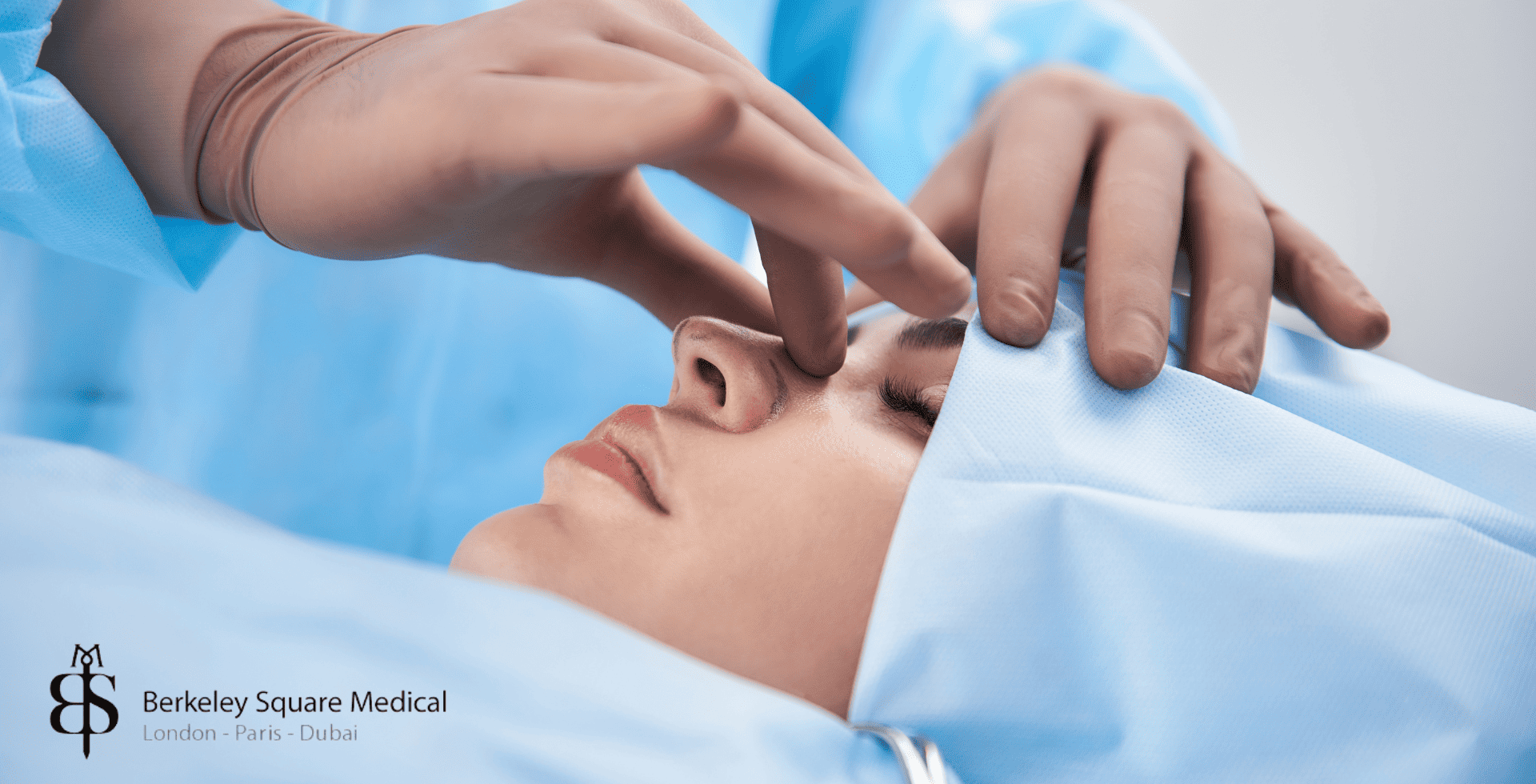
The nasal cast is typically removed 5 to 8 days after rhinoplasty, and the process is quick and painless. It’s an important step in your recovery, allowing your surgeon to assess early healing and guide you on what to expect next. Another common question is what to expect after the cast is off and if it stops protecting your freshly operated nose.
In this guide, we’ll explain what cast removal feels like, how to prepare for it, and how to care for your nose afterward.
The nasal cast is usually removed 5 to 8 days after rhinoplasty, depending on your healing and your surgeon’s protocol.
Cast removal is quick and painless, often done during a scheduled follow-up visit.
Mild swelling or redness after removal is normal and typically settles within 10–14 days.
You may receive skin-friendly tape or further instructions to support healing after the cast comes off.
If your cast falls off early, don’t try to reattach it yourself—contact your clinic right away.
Avoid heavy exercise and nose-blowing until your surgeon confirms it’s safe.
The time your cast needs to remain in place is usually between 5 to 8 days following the nose surgery. The exact time depends on the type of surgery you had.
If your nasal bones had to be fractured and re-centralised, it may require longer protection than if you only had some cartilage removed. However, almost all patients will have their nasal cast removed on day-7 after their surgery.
Your surgeon will schedule your follow-up consultation according to the time your nose needs to heal.
Most patients have their nasal cast removed during a quick in-clinic visit. It will be exciting as this will be the first time you can assess the shape your new nose! Here’s what typically happens:
Your surgeon or nurse will check how your nose is healing and make sure the cast is ready to come off.
Using a gentle technique, the tape and cast are carefully peeled off. This process is usually painless, though you might feel slight pressure or tugging.
Once the cast is off, your surgeon will inspect your nasal shape, swelling, incision sites, and early contour. If it appears bruised and swollen, don’t worry, this is perfectly normal at this stage.
You may receive skin-safe tape to help manage swelling or gently support your nose as healing continues.
You’ll be advised on how to clean the area, whether to continue taping, and when you can resume normal activities like light exercise or wearing glasses.
It does not happen often but the cast may become loose before it’s time to remove it. The most common reason is that swelling to your nose has contributed to the cast peeling, but another common reason is oily skin on the nose that causes the cast to become less adhered to the skin.
If this happens to you, carefully apply an additional layer of tape to the top of the existing one.
Position it in a way that half of it covers the old tape and the other half sticks to your face near the cast. Do not remove it before you are instructed to do so by your surgeon even if it becomes loose.
Take extra care to keep it dry which should ensure it does not come loose again.
Your surgeon uses strong tape to keep the cast in place but if it becomes loose, the best thing to do is contact your clinic team.
If you don’t have help, cut a piece of fresh tape and apply it over the old tape across the cast. Make sure it is longer than the previous one, you will want an additional cm or 1/2 an inch.
Gently place the cast back to the same position it was before while holding up the edges of the new tape. Once it’s in position, smooth the tape on either side so it sticks to your face. Carefully check to see if the adhesion is strong enough to keep the cast in place.
If you have help, you can start with placing the cast back to its position and ask the other person to carefully place new tape covering the edges of the old tape.
If you are told to remove the cast at home, these are the steps you need to follow:
No, cast removal is typically quick and painless. You may feel some gentle pressure or a light tugging sensation, but most patients describe it as more strange than painful.
Your nose may look slightly swollen, shiny, or red after cast removal. This is completely normal. The final shape will still be forming over the coming weeks and months.
Yes, you can usually return to normal showering once the cast is removed, but avoid hot water, scrubbing, or soaking your face for at least a few more days. Pat gently around the nose instead of rubbing.
You should wait at least 24–48 hours before applying makeup or skincare products near the nose area, and only if your surgeon confirms it’s safe. Stick to gentle, non-active products during early healing.
Yes. If your cast becomes loose or falls off before your scheduled removal date, do not try to reattach it yourself. Call your clinic immediately for instructions. They may advise you to come in or apply medical tape temporarily.
Most surgeons recommend waiting at least a few more weeks after cast removal before wearing glasses normally. Resting them on the nose too soon can affect healing. Your surgeon may provide taping options or other workarounds.
After cast removal, clean your nose gently using a saline spray or a rinse if your surgeon recommends it. Avoid touching, picking, or blowing your nose. Pat around the area with a soft, clean cloth and follow any aftercare instructions provided. Follow the steps we have outlined in this article dedicated to nose cleaning after surgery.